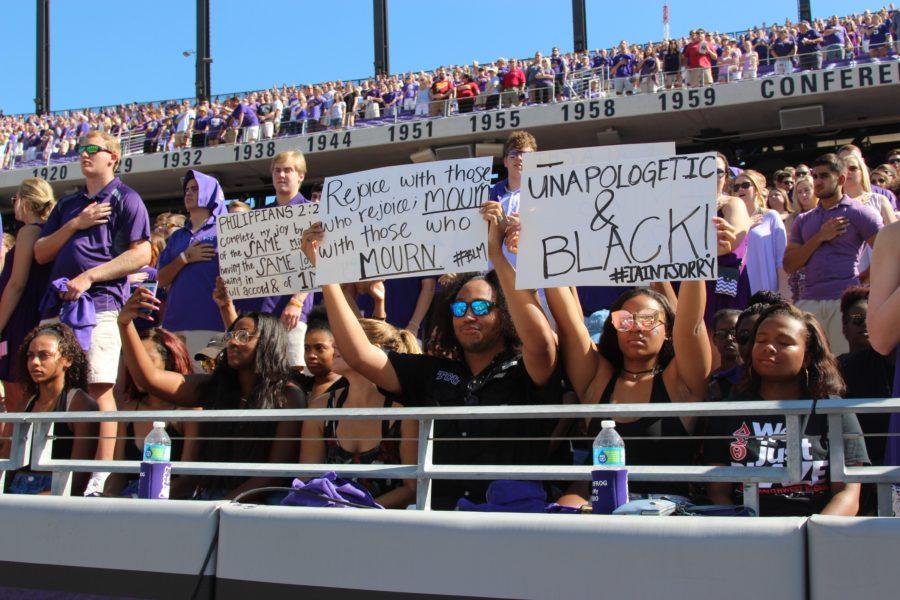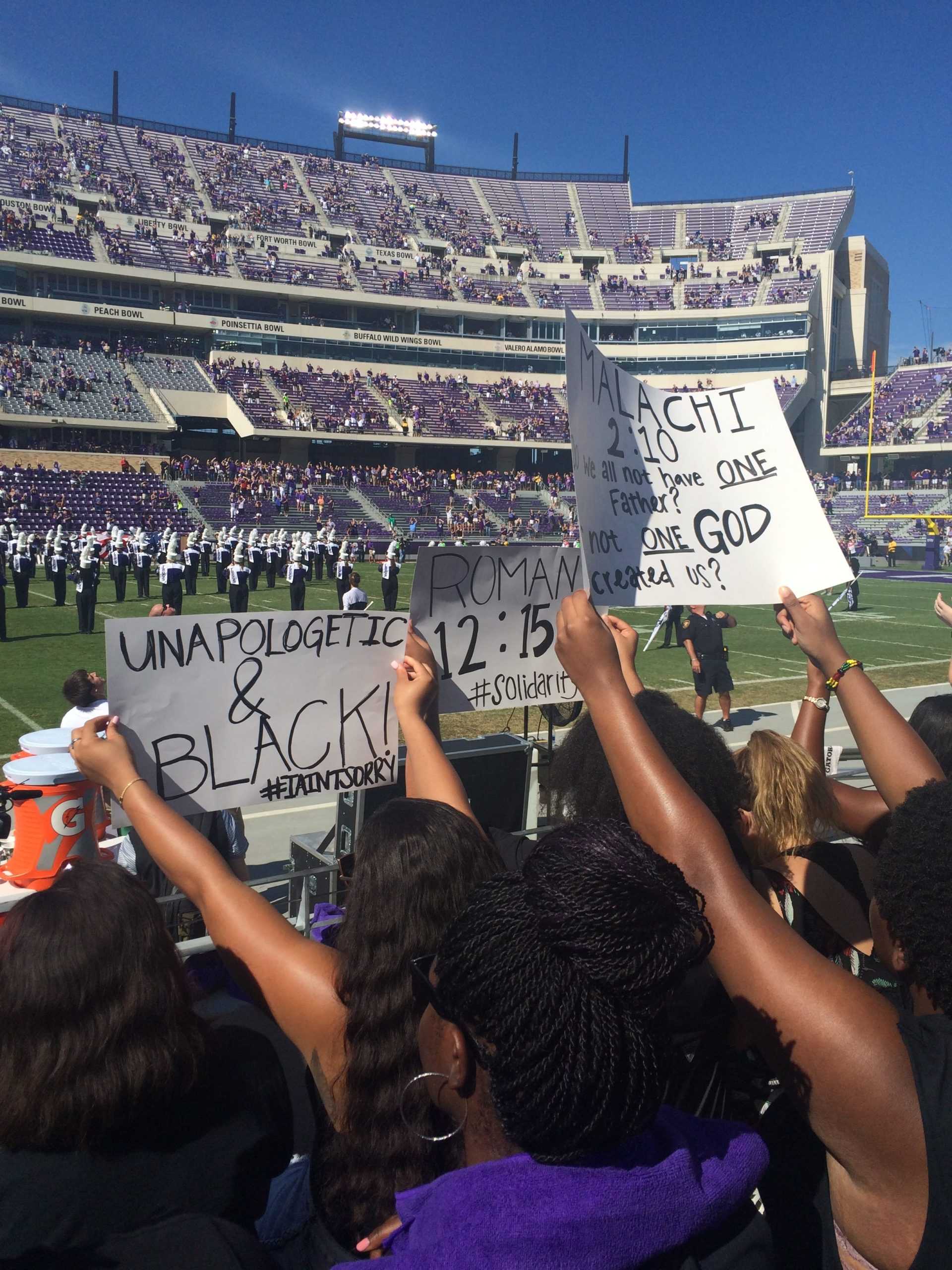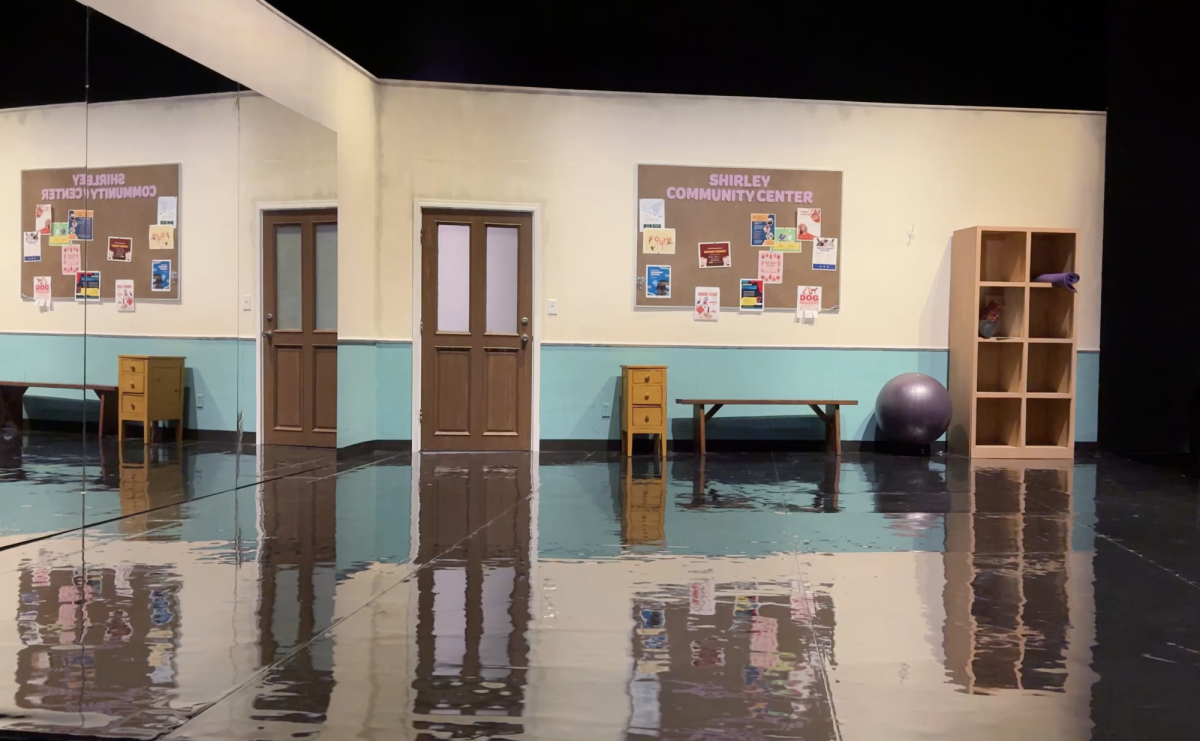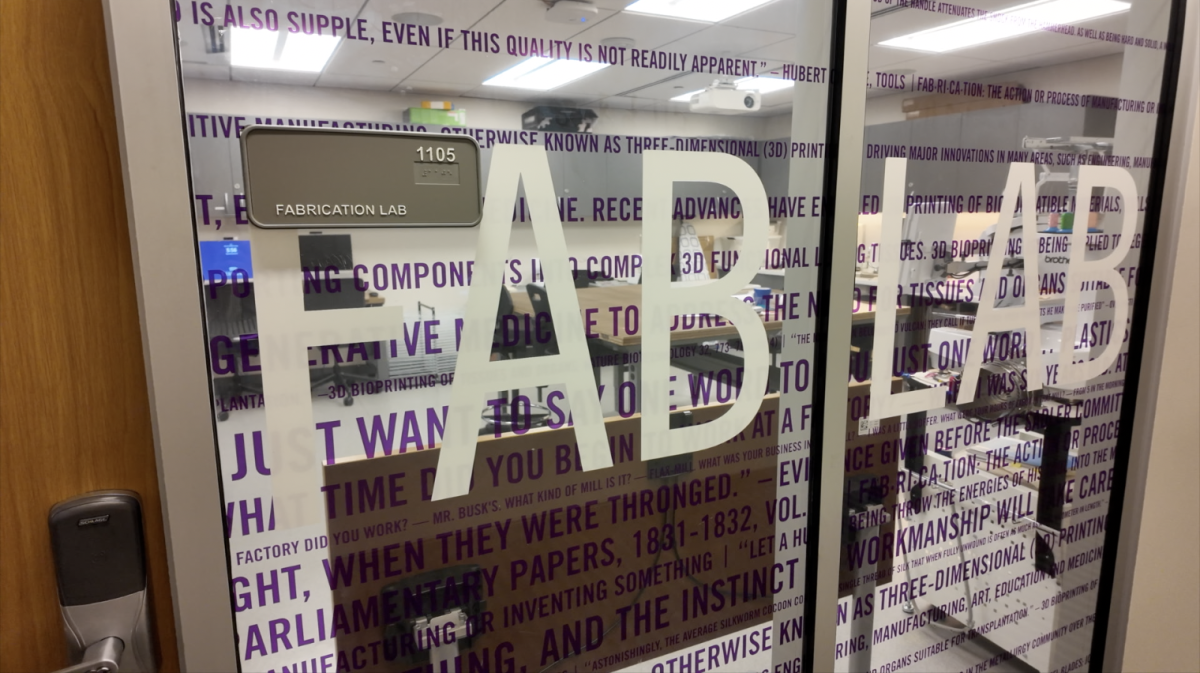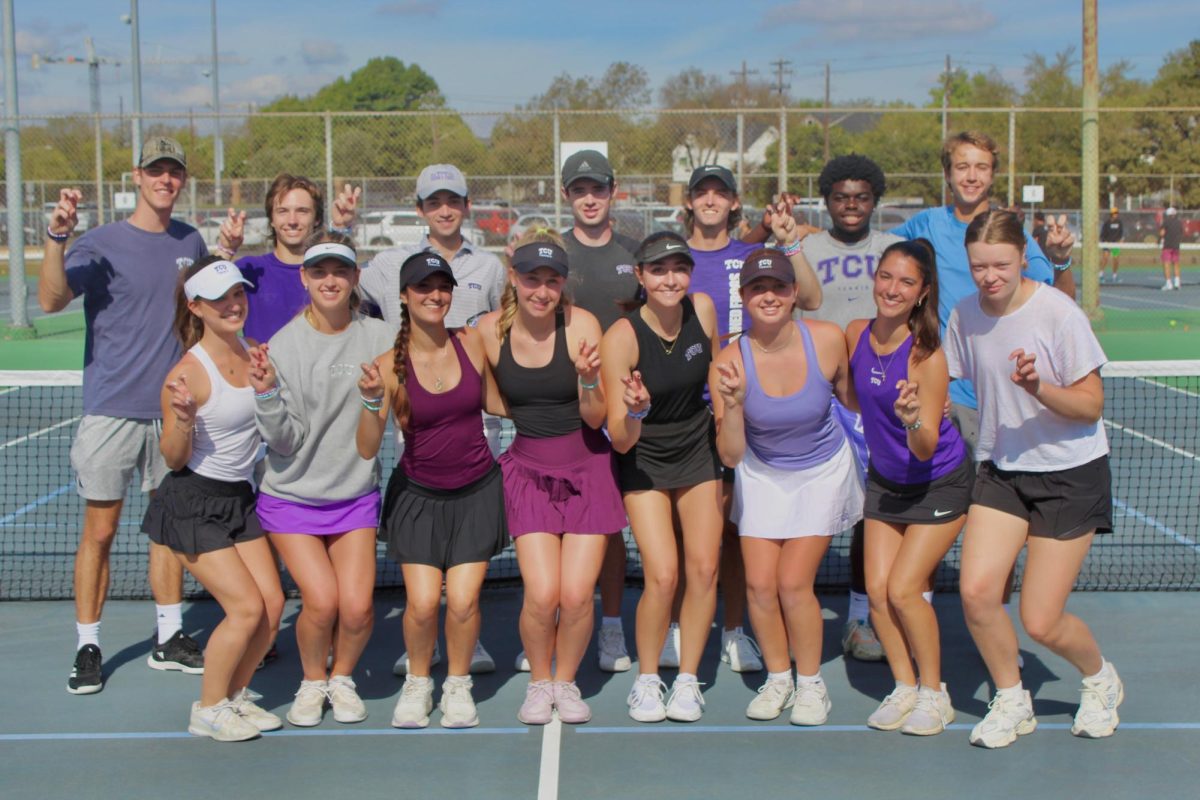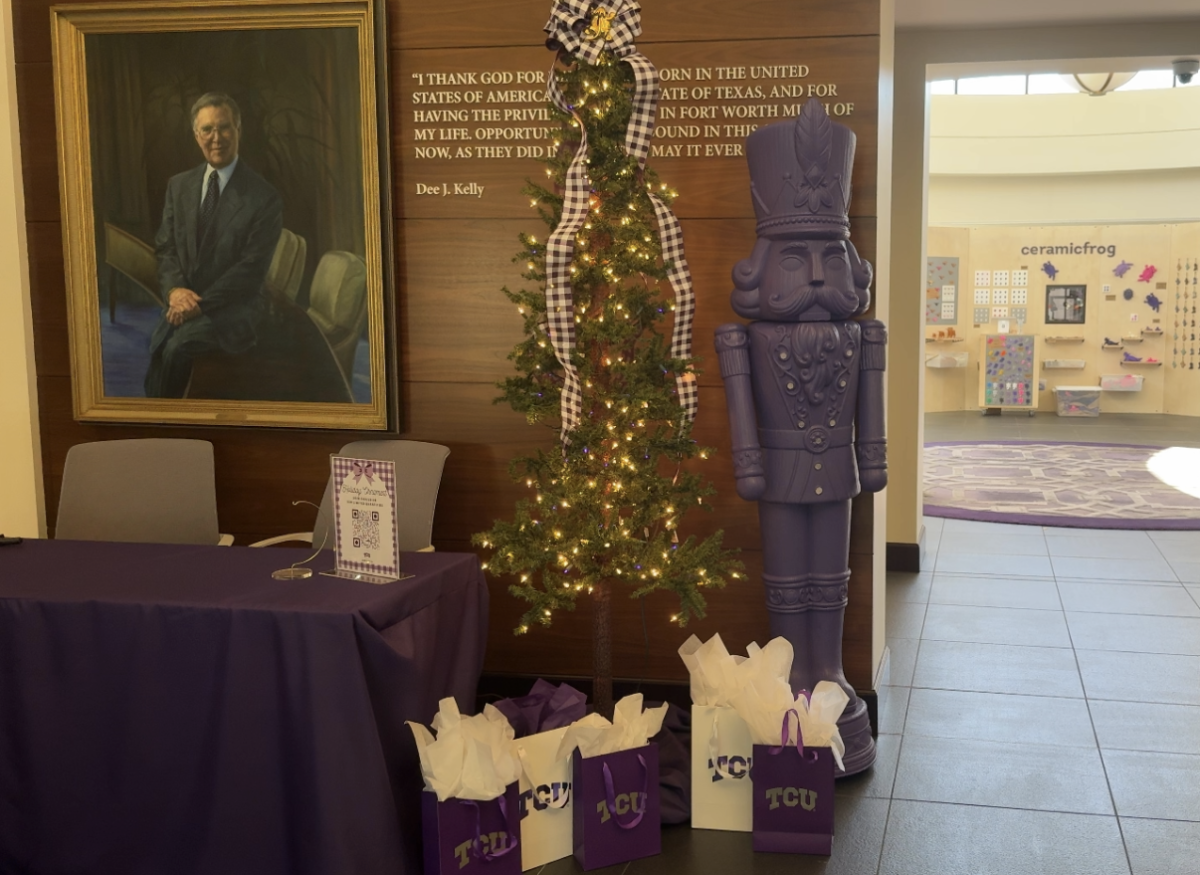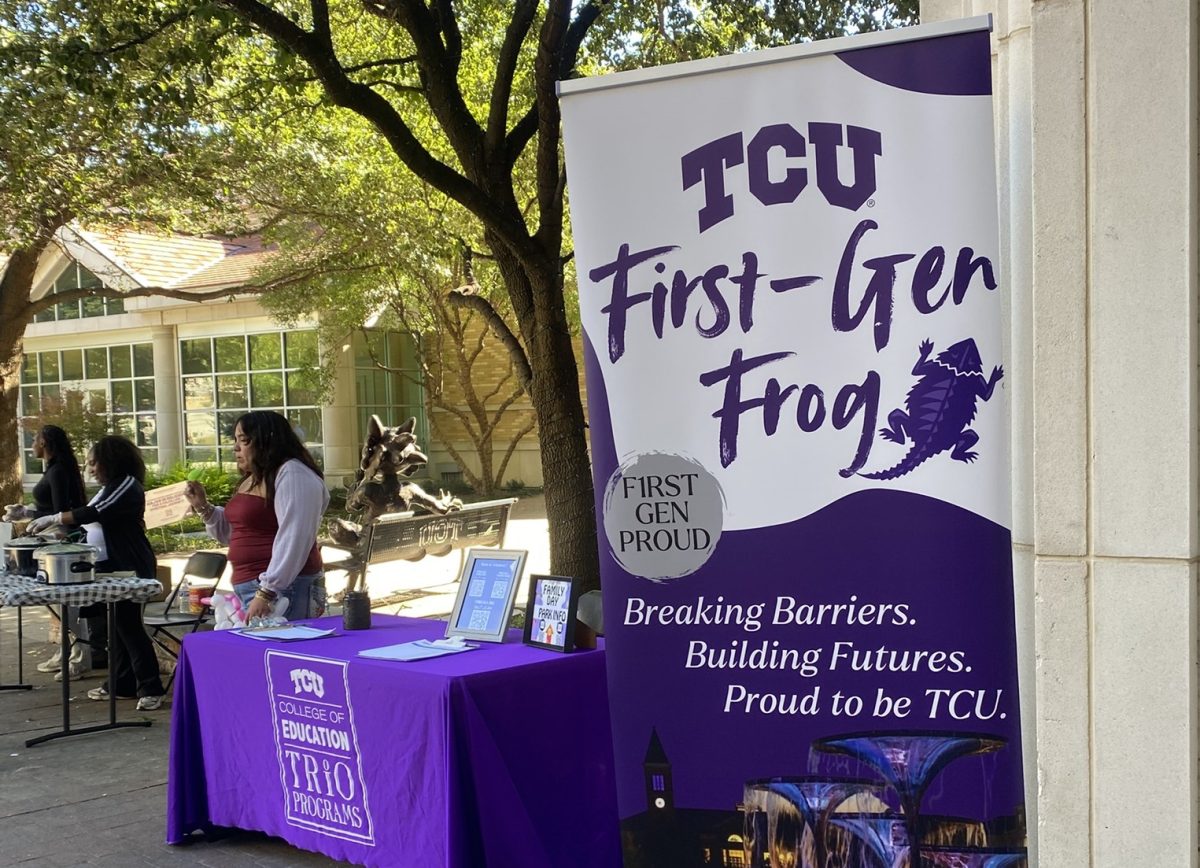TCU Sociology Professor Jeff Ferrell, who studies social movements and protests, said our society needs respectful reminders like the silent protest to remind us of how much farther we have to go as a society.
The organizers of the demonstration say the group will continue to remain seated during the national anthem to show solidarity with the Black Lives Matter Movement during future sporting events.
“I think a lot of times historically we accept change as seemingly inevitable,” said Ferrell. “But if we look back at it, it was because of effective protests or well-organized social movements.”
The current demonstration started when San Francisco 49ers quarterback Colin Kaepernick knelt during the national anthem. Kaepernick’s silent form of protest has gained popularity with other athletes including four players from the Miami Dolphins, Broncos linebacker Brandon Marshall and U.S. Women’s national soccer player Megan Rapinoe.
(Photos//ApImages Music//AudioBlocks.com)
The silent demonstrations along with large Black Lives Matter marches in cities like Ferguson, Mo. and Charlotte, N.C. came up during the first presidential debate of the campaign season. Debate Moderator Lester Holt asked Hillary Clinton and Donald Trump about the recent gun violence in the country. Both candidates mentioned the protests in their responses.
Junior International Economics/Political Science major Ira Thomas said neither candidate offered a concrete solution to end the violence, but he thought the demonstrations had a heavy impact on how the candidates prepared for the debate.
“I noticed that both candidates decided to target [minority] communities to do more campaigning with them,” Thomas said. “I think that the deciding factor seems like it may have a big portion of the minority, which in this case is the African-American vote.”
However, not everyone is pleased with Americans exercising their right to protest.
The First Amendment of the U.S. Constitution guarantees American citizens the right to peaceful assembly and to petition the government for a redress of grievances. This allows the athletes to kneel during the anthem despite other people’s opinions.
However, the amendment does not apply on TCU’s campus. As a private university, TCU can decide for itself what rights can be exercised and if they are done so appropriately.
A current TCU student was suspended from the university on August 2015 for “offensive” tweets. The suspension was later lifted, but the case received national attention. Later that same year, another case was reported regarding the violation of a student’s freedom of speech, also protected by the First Amendment.
Both students were told TCU could limit or censor its students because it is a private university. But so far TCU has allowed the group of students to continue the silent protests at sporting events and has not attempted to deter the group from continuing to protest in the future.

